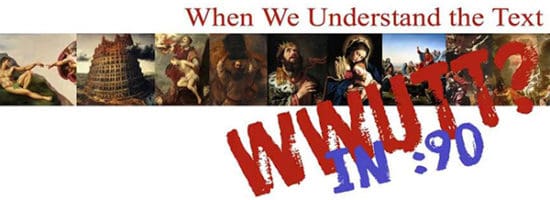
Papal Infallibility? (Ex Cathedra)
Papal infallibility is the belief that the Pope is incapable of error, when speaking from his position of supreme apostolic authority, in defining doctrine concerning faith or morals.
“The Roman pontiff when he teaches ex cathedra ‘enjoys, by reason of the Divine assistance promised to him in blessed Peter, that infallibility with which the Divine Redeemer wished His Church to be endowed in defining doctrine regarding faith and morals.’” (P.J. Toner on “Infallibility” from the Catholic Encyclopedia, Volume VII)
This doesn’t mean the Pope is sinless, although there are plenty of Catholics who believe that. Rather, it means that his teaching is perfect whenever he speaks Ex Cathedra, or from the Chair of St.. Peter.
The doctrine was defined by the First Vatican Council, presided over by Pope Pius IX.
“The Roman Pontiff when he speaks ex cathedra, that is when he, in the exercise of the office of supreme apostolic authority, decides that a doctrine concerning faith or morals is to be held by the entire Church, he possesses, in consequence of the divine aid promised him in St. Peter, that infallibility which the Divine Savior wished to have His Church furnished for the definition of doctrines concerning faith or morals; and that definitions of the Roman pontiff are of themselves, and not in consequences of the Church’s consent, irreformable.” (Pope Pius IX, First Vatican Council Session 4 [July 18, 1870], Chapter 4, Section 9)
Pius decreed the Immaculate Conception of Mary – the belief that Mary was without sin. (Even though Jesus said, “No one is good but God alone.”)
No one is good except God alone. (Mark 10:18, Luke 18:19)
For all have sinned and fallen short of the glory of God. (Romans 3:23)
Now, Catholic apologists maintain that the Pope has spoken Ex Cathedra only one other time: when Pope Pius XII decreed the Assumption of Mary – that she was bodily taken up into heaven.
“While the Pope has always held the power to exercise the Extraordinary Magisterium by speaking ex cathedra, the actual occurrence of an ex cathedra statement is quite rare. It is generally understood to have only occurred twice: Pope Pius IX definition of the dogma of Mary’s Immaculate Conception in 1854, and Pope Pius XII’s definition of the dogma of Mary’s Assumption in 1950. (Catholic Exchange, The Pope and Infallibility, May 31, 2005)
But, these are not the only occasions papal infallibility has been exercised.
The Second Vatican declared that, even when the Pope is not speaking from the chair, “…his supreme Magisterium is acknowledged with reverence, and his judgments are sincerely adhered to, according to his manifest mind and will.” (Second Vatican, Lumen Gentium [November 21, 1964] Chapter 1, Paragraph 25)
The Roman Catholic Church believes the Pope’s word is as good as God’s Word.
It was such teaching that spurred Protestant reformer William Tyndale to declare:
“I defy the Pope and all his laws. If God should spare my life ere many years, I will cause the boy that drives the plow to know more of the Scriptures than you!”
Tyndale translated the Bible into English so that all could read God’s Word. The Roman Catholic Church had him burned at the stake.
Tyndale understood what the Pope doesn’t: that our only infallible authority is the Bible.
All Scripture is breathed out by God and profitable for teaching, for reproof, for correction, and for training in righteousness… (2 Timothy 3:16)
This God, His way is perfect; the word of the Lord proves true; He is a shield for all those who take refuge in Him. (Psalm 18:30)
All Scripture is breathed out by God.
As the Psalm says, God’s Way is perfect and the word of the Lord is without error.
…when we understand the text.
(This video is by WWUTT. Discovered by Christian Podcast Central and our community — copyright is owned by the publisher, not Christian Podcast Central.)